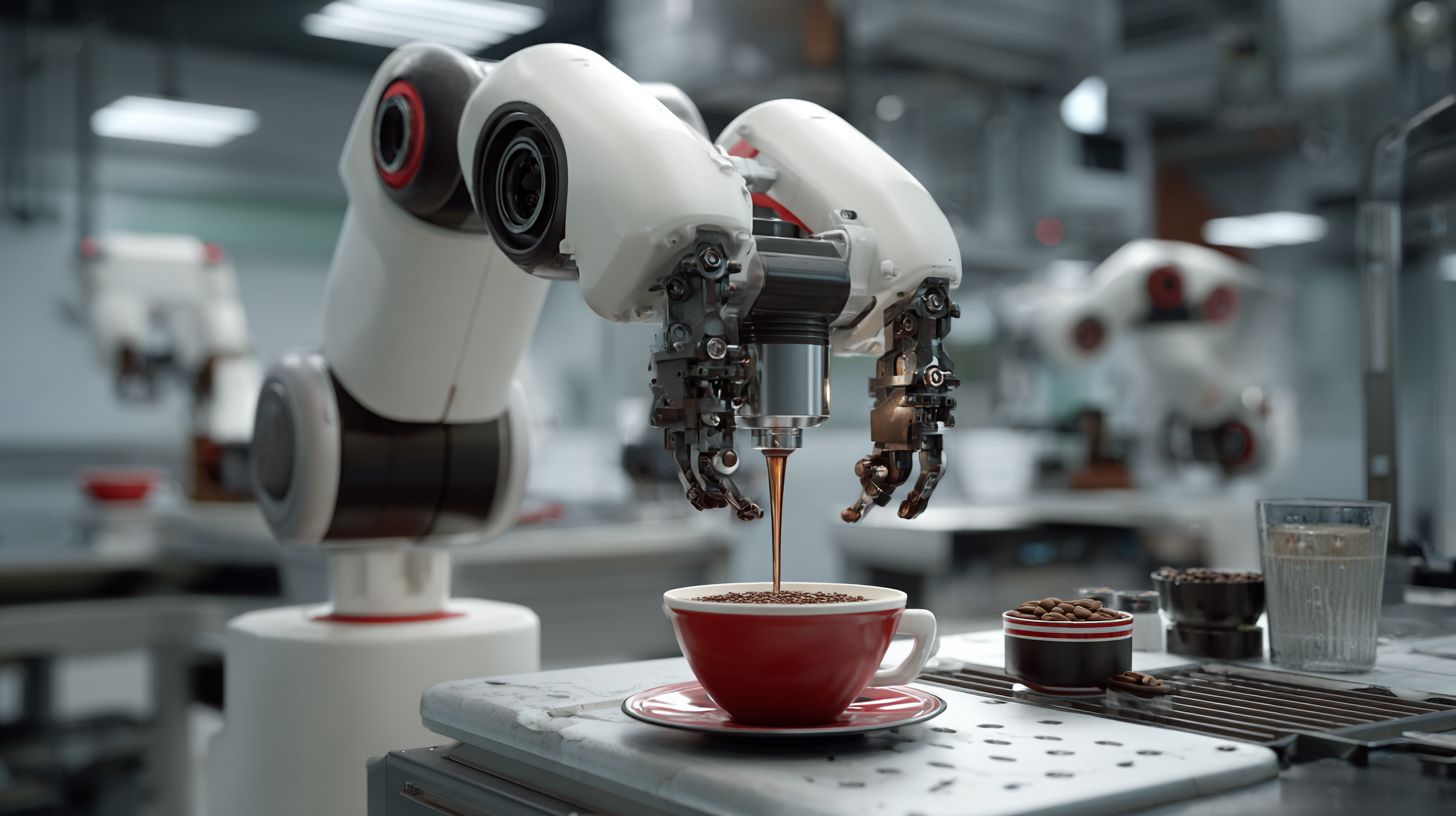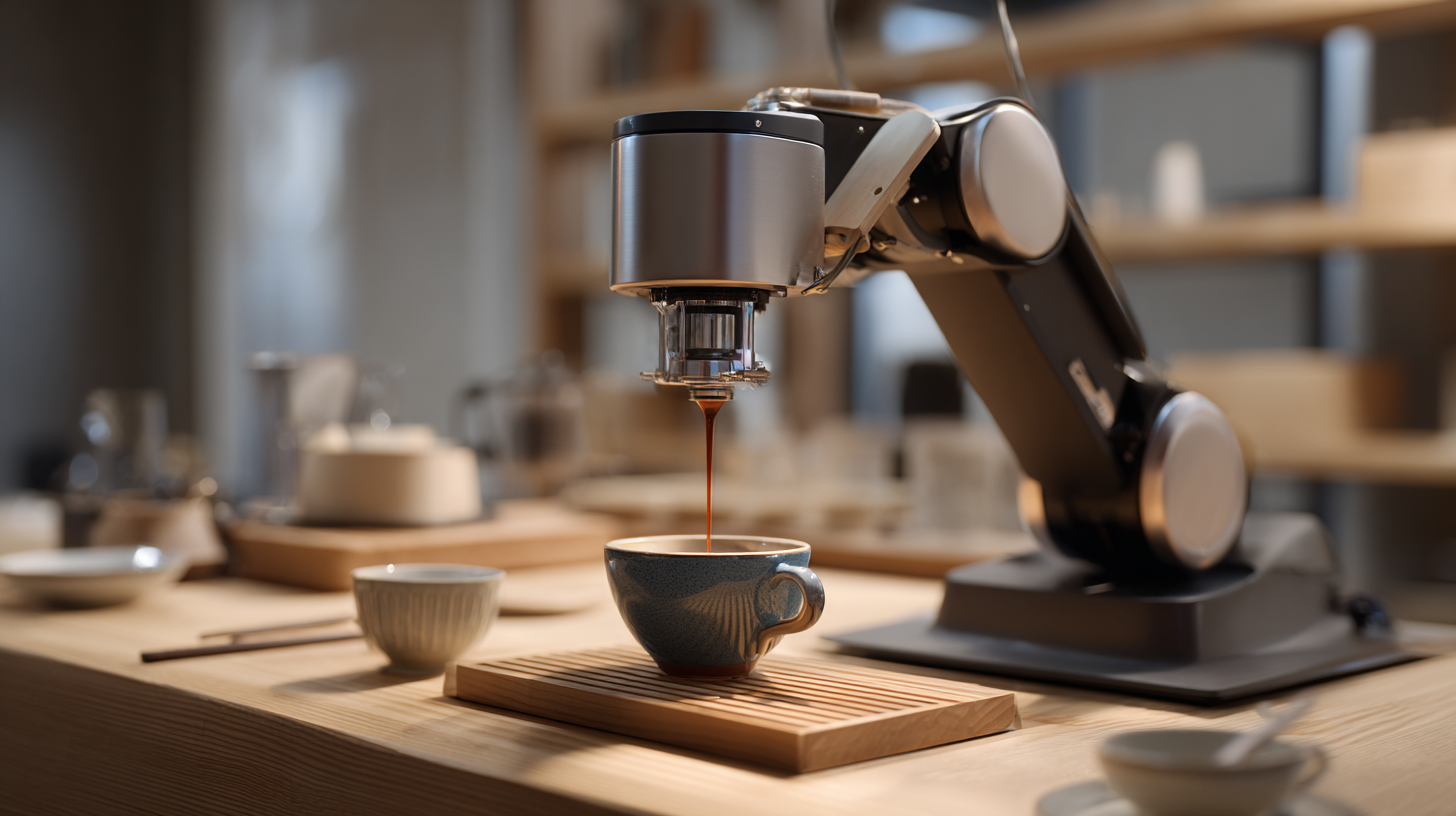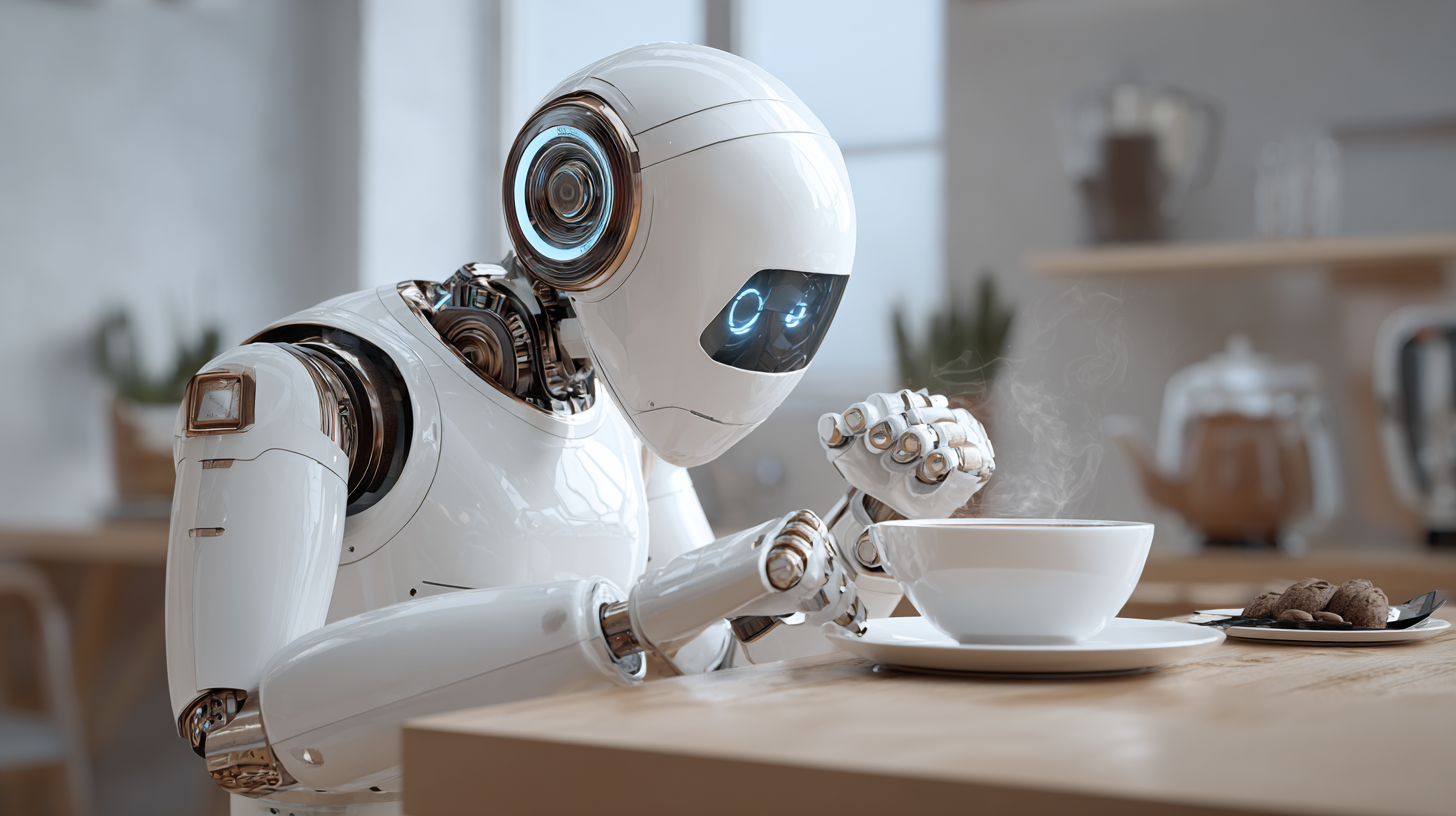Exploring the Rise of Coffee Robots: How Automation is Brewing the Future of Coffee Consumption
As we delve into the fascinating evolution of coffee consumption, the emergence of Coffee Robots is transforming the way we experience our daily brew. The fusion of technology with traditional coffee-making practices promises not only efficiency but also a unique blend of convenience and flavor. According to Dr. Emily Roberts, a leading expert in robotics within the food and beverage sector, "Coffee Robots are redefining the coffee landscape, allowing consumers to enjoy personalized brews while optimizing functionality in cafes."
This innovative leap into automation has captured the attention of coffee lovers and businesses alike. With advancements in artificial intelligence and machine learning, Coffee Robots can now analyze user preferences and create customized drinks that cater to individual tastes. The futuristic café experience no longer just involves skilled baristas but also includes intelligent machines that can deliver exceptional quality and consistency.
As we explore the rise of Coffee Robots, it becomes evident that this technology is more than just a trend; it reflects a significant shift in how we perceive and consume coffee. From enhancing the customer experience to providing operational efficiencies for businesses, these robots are brewing a new era in coffee culture, setting the stage for a smarter, more exhilarating coffee journey.

The Evolution of Coffee-Making Technology: From Baristas to Bots
The evolution of coffee-making technology has seen a remarkable transformation from skilled baristas to automated robots, ushering in a new era of coffee consumption. Recent innovations highlight the emergence of robotic baristas capable of preparing high-quality beverages with precision and efficiency. For instance, robots like those deployed in Shanghai by innovative companies offer quick and cost-effective coffee solutions, adapting to the demands of a bustling market that craves both speed and affordability.
As the presence of technology in coffee shops grows, so too does the debate about the role of human baristas. While robots are becoming adept at crafting the perfect cup, the essence of coffee culture, often tied to personal interaction and artistry, continues to be valued by many consumers. The landscape of coffee-making technology is rapidly evolving, suggesting that while automation can enhance service, it is unlikely to completely replace the human touch that defines the coffee experience. As we witness this shift, the challenge lies in finding a harmonious blend of tradition and innovation in our coffee rituals.

Understanding the Role of AI in Enhancing Coffee Quality and Experience
The emergence of coffee robots represents a significant shift in the coffee industry, with automation playing a crucial role in enhancing both coffee quality and consumer experience. Recent developments, such as the successful funding of an AI-driven coffee brand, indicate a growing interest in integrating technology into coffee production. These advancements promise to produce fresher, high-quality coffee tailored to individual preferences by utilizing AI algorithms that analyze various factors during brewing.
Moreover, key players in the coffee market are exploring how artificial intelligence can redefine the coffee-making process. Notably, trials involving AI baristas are underway, showcasing how technology can not only streamline operations but also elevate the overall coffee experience for consumers. By leveraging AI, coffee shops can ensure consistency in flavor and presentation while adapting to the ever-changing preferences of their customers. This innovation signifies a future where technology and coffee culture blend seamlessly, offering a unique tasting experience that appeals to a modern audience.
Exploring the Rise of Coffee Robots: How Automation is Brewing the Future of Coffee Consumption
| Feature | Traditional Coffee Brewing | Coffee Robots |
|---|---|---|
| Brew Time | 5 - 10 minutes | 2 - 3 minutes |
| Consistency | Variable | High |
| Personalization | Limited | Extensive |
| Quality Control | Manual oversight | Automated sensors |
| Cost | Low - Moderate | High initial investment |
| Maintenance | Moderate | Low |
Consumer Preferences Shifting: The Appeal of Automated Coffee Solutions
As consumer preferences continue to evolve, the appeal of automated coffee solutions is becoming increasingly pronounced. The smart coffee makers market is projected to experience explosive growth, reaching USD 1,841.3 million by 2033, up from USD 396.4 million in 2023, signifying a substantial CAGR of 16.6% from 2024 to 2033. This surge underscores a shift in consumer behavior, particularly among Gen Z, who are embracing technology and innovation in their coffee consumption routines. They value efficiency, convenience, and customization, which automated coffee solutions adeptly provide.
However, the integration of automation into the coffee industry requires a delicate balance with customer service. While automation is often touted as a "silver bullet," it should not compromise the essential human touch that enhances the coffee experience. In specialty coffee, customer interaction remains paramount, ensuring that automation complements rather than replaces personal service. As the coffee machines market is set to grow significantly, valued at USD 14.17 billion by 2033, industry players must navigate this landscape by prioritizing both innovation and customer engagement to truly capture the evolving tastes and preferences of modern consumers.
Economic Impacts of Coffee Robots on the Coffee Industry and Employment
The rise of coffee robots is transforming not only the way coffee is brewed but also the economic landscape of the coffee industry. Automation is streamlining coffee production processes, allowing for greater efficiency and consistency. With robots handling tasks such as brewing, packaging, and even serving coffee, companies can reduce operational costs, ultimately leading to potential price reductions for consumers. This increased efficiency can create a competitive edge for businesses, allowing them to scale operations and innovate product offerings.
However, the shift towards automation also raises significant concerns regarding employment in the coffee sector. Traditional roles, from baristas to quality control inspectors, may be at risk as machines take over specific tasks. While automation can enhance productivity, it poses a challenge for workers whose skills may become obsolete. The coffee industry will need to balance technological advancement with workforce development, potentially investing in retraining programs to help employees transition into new roles that leverage technology rather than replace it. Understanding the economic implications of coffee robots requires a nuanced approach that considers both the benefits of increased efficiency and the challenges of workforce displacement.

The Future of Social Interactions: Coffee Consumption in an Automated World
In an increasingly automated world, coffee consumption is undergoing a remarkable transformation that redefines social interactions. The introduction of coffee robots—machines capable of brewing and serving coffee with remarkable precision—offers a novel way for consumers to engage with their favorite beverage. These automated baristas eliminate long wait times and streamline the coffee-making process, allowing people to grab their drinks and go. Yet, this efficiency raises questions about the warmth and human connection traditionally found in coffee shops.
As automation becomes more prevalent in coffee culture, the essence of social interactions may shift significantly. Coffee has long served as a communal experience, where friends gather to share conversations and build relationships. However, with robots taking on the role of baristas, the human touch may diminish. This shift could lead to new forms of socializing, where technology facilitates connections rather than replacing them. As consumers adapt to this evolving landscape, it will be essential to explore how these automated interactions can coexist with, or even enhance, the age-old rituals of coffee consumption.
- • HighpowerOne Touchscreen Controller • HighpowerOne Mobile Credential App
- Highpower Management System
- • Pushplate 100 PNZ
- • Pushplate 110 PNZ
- • Pushplate 120/140 PNZ
- • Pushplate 130/150 PNZ
- • Pushplate 200 PNZ
- • Pushplate 100
- • Pushplate 110
- • Pushplate 120/140
- • Pushplate 130/150
- • Pushplate 200
Mechanical Timers
Proximity ID Access Cards and Fobs
Proximity Card Readers
- • Proximity Reader P-300
- • Proximity Reader P-400
- • Proximity Reader P-500
- • Proximity Reader P-620
- • Proximity Reader P-640
- • Proximity Reader P-710
- • Proximity Reader P-900
- • Ranger Proximity Readers
- • Ranger Controls
- • Sure-Fi Wireless Interfaces
Smart Series JX Readers
Electromagnetic Locks
Highpower Power Supplies
• H505
• H512
Security Products Summary
